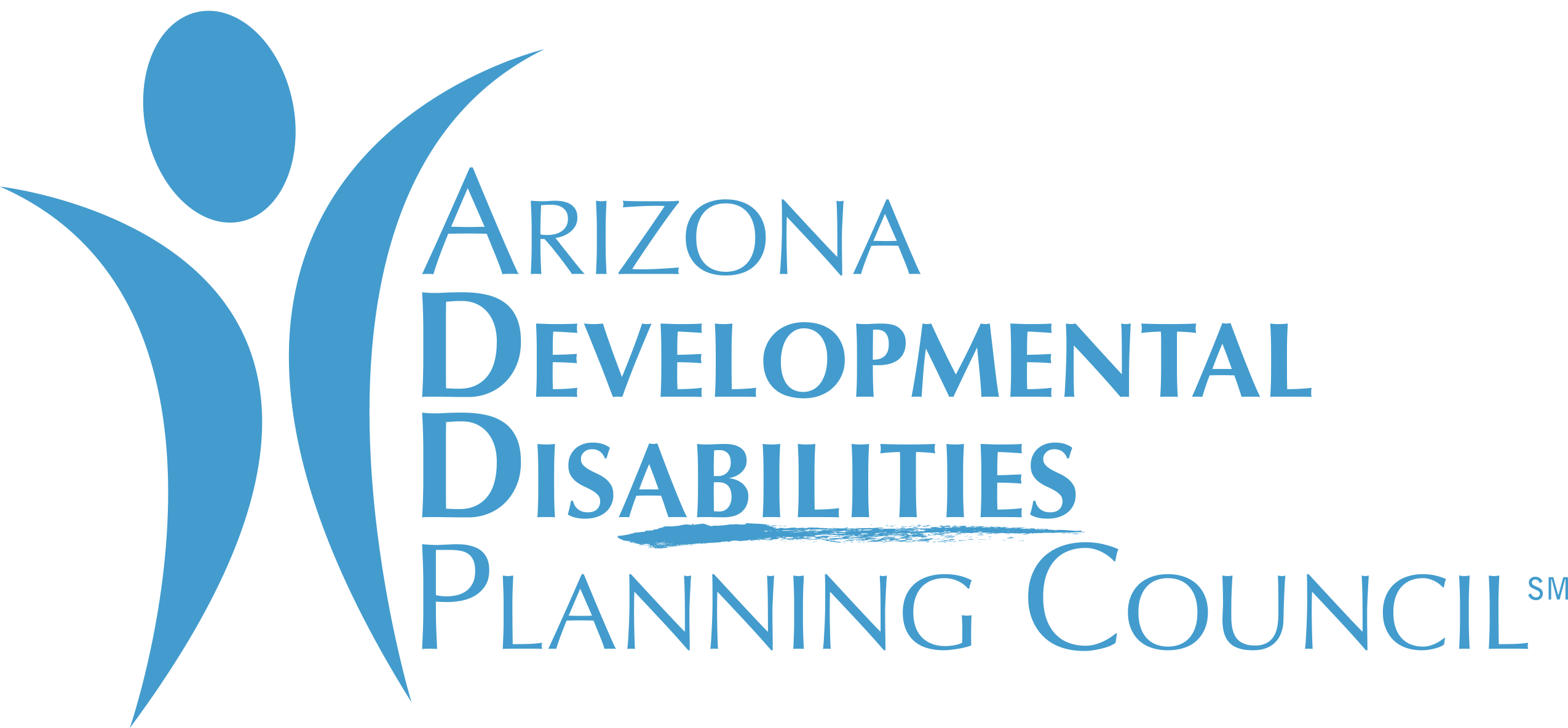Letter from ADDPC to State Leaders about Disability Services in COVID-19 Crisis
Letter from ADDPC to State Leaders about Disability Services in COVID-19 Crisis
Click here to read this letter in PDF form
March 17, 2020
Dear Director Snyder, Director Christ, and Assistant Director Garcia Ramadan:
On behalf of the statewide disability community, the Arizona Developmental Disabilities Planning Council (ADDPC) thanks you for your attention to COVID-19. I know each one of your agencies/programs has issued some guidance, as recently as yesterday, around this unprecedented issue. Like you, ADDPC is very concerned over the potential impact of COVID-19 to individuals with developmental disabilities, as well as the infrastructure that supports them. This pandemic will undoubtedly exacerbate the staffing shortage issues we were already experiencing.
As you are well aware, government entities have a legal obligation to provide equal access to public health emergency services to people with disabilities, including throughout a pandemic, if declared, under the Rehabilitation Act of 1973, 29 U.S.C. § 701 et seq. and the Americans with Disabilities Act of 1990, 42 U.S.C. § 12101 et seq. Equal access includes ensuring continuity of operations for disability services before, during, and after public health emergencies. We are seeking more guidance from our state agencies as we navigate this uncharted territory.
We understand CMS has a Disaster Preparedness Toolkit that states can opt to use that allows flexibility across the different waiver programs. We have been in touch with other states to learn from what they are doing. Many states are closing their congregate settings for the safety of staff and individuals with disabilities.
- In Pennsylvania, providers are being told to redeploy staff to in home supports in family homes (prioritizing those families who are essential health care workers - EMTs, nurses, doctors, etc. and those families who have elderly caregivers) or to fill gaps in residential settings. Providers are being asked to share staff to meet urgent health and safety needs. The requirements for staff qualifications are being relaxed so that DSPs who are deemed qualified for direct services in any one of the various services can provide ALL of those services, except those which are professional - therapies, etc. There is a dedicated page on the state website to keep track of all the changes.
- In Connecticut, they have also put in a directive that no more than 5 people can meet, which includes staff.
With this in mind, the following are key issues we would like to see addressed to ensure that our members and support staff are supported throughout the crisis and that there is still an infrastructure in place to support our members when the crisis ends.
- Provide flexibility in provider qualifications and locations:
- Can we allow providers of day programs to provide services to individuals living in group homes? This could increase capacity of group home providers should they have staff who are ill, as well as provide a funding source for day programs that may otherwise go out of business if there are extended closures with expectations for social distancing.
- Can we also allow telehealth options through this pandemic so people are still getting served, beyond speech and occupational therapies, e.g., habilitation, employment training, etc…? This will help meet chronic and emergent medical needs while also helping address social isolation.
- Require that all direct support staff be issued mandatory COVID-19 protocols. Providers of these services must also have the personal protective equipment and instructions needed to minimize exposure and spread of infection. The providers have received little direction on what to do amid this crisis. Following is a sample policy we received from the AZ Public Health Association that should be used by all vendors that remain open:
Participant and Staff Temperature Screening Policy – Each Participant and Staff member shall be screened twice daily for fever using a non-contact forehead thermometer as follows:
- Within the first 30 minutes of arrival; and immediately before lunch.
- Participants or staff that present with a temperature of 100oF or higher will be isolated in a separate designated room. Isolated persons will be screened again for temperature 10 minutes after isolation. If the fever is still 100oF or higher after 10 minutes the person shall remain isolated until transportation can be arranged to transfer the person to return home.
- Staff or Participants with a temperature above 99oF but less than 99.9oF and have any other symptom of illness (coughing etc.) shall be placed in isolation until transportation can be arranged to transfer the person to return home.
- Staff or Participants with a temperature above 99oF but less than 99.9oF with no other symptoms of illness (coughing etc.) shall be encouraged to return home but do not need to remain in isolation until their transportation arrives.
- Staff and Participants with excessive coughing, sneezing etc. but with no fever shall be assessed in a case by case basis.
Participant and Staff Handwashing Policy – Each Participant and Staff member shall wash their hands with soapy water with supervision for at least 20 seconds and hands dried with disposable paper towels as follows:
- Immediately upon arrival;
- Immediately before lunch;
- Prior to handling food; and
- Prior to departing for home.
- Address direct care workforce shortages:
- Include retainer payments to save providers who may otherwise go out of business. For example, consider reimbursing each provider (DTA, GSE etc) revenue equal to their past 3-month average for the upcoming 3 months - essentially waiving the requirement that the participant be present in the program for the provider to be reimbursed. This could likely be accommodated with an emergency AHCCCS waiver to CMS.
- Increase payment rates to providers who serve members who are sick and in quarantine to account for increased health risk;
- Temporarily fund an additional week of worker sick time so that employees are encouraged to stay home when they are sick as opposed to infecting others;
- Expedite approvals of substitute personal attendants/employees in the event a primary attendant is ill or is unable to come to work because of school closures. One way to approach this is by waiving the requirement that all training needs to be done in person; instead allow web-based training. Also, temporarily waive re-certification requirements.
- Suspend or waive overtime limiting regulations for personal assistance services so that people with limited staff and/or support network, staff and/or support network who are ill, quarantined or otherwise unavailable, and individuals in rural areas with limited resources may continue to receive long-term services and supports. Also allow overtime for family members and live-in support providers who are also paid employees.
- Extend service plan reviews by 3 months, when needed. The pandemic will create situations when a planning meeting cannot take place and services need to continue.
- Set expectations with members in plain language and other accessible formats about fears they may have. Some questions include:
-
What should individuals do if they suspect their DSP or caregiver is sick? If they do not allow the provider in, will they be denied services?
-
What are the consequences for organizations who are unable to maintain residential or community services?
-
How will Medicaid-funded transportation be affected?
-
Can members temporarily increase their home-based hours in the wake of other services being suspended or cancelled and schools being closed?
-
It is essential that communication from all state agencies to members and families is clear, complete and in plain language. It is also important that this information gets to all individuals receiving DD waiver services. The information could be passed along through their support coordinators and MCOs. We have created a page at the Council for self-advocates with plain language information, located here: https://addpc.az.gov/newsroom/tips-covid-19-resources-disability-community
ADDPC wishes to support the work you are doing, and we hope you consult with leaders from the disability community in your planning. Please let us know how we can help. Specifically:
- What materials would you like us to push out to our networks?
- Do you need plain language versions of your documents or any accessible materials around prevention?
- Are there any gaps you are confronting that we may help to address?
A perfect example of the fragility and vulnerability of DSPs not being afforded enough sick time or COVID-19 protocols is a call our office received just yesterday from a DSP who was sent home by their employer. The DSP faced insufficient resources for food and other basic needs for their family. We need to find a way to support these individuals who were already scraping by before this crisis – for the safety of them and the I/DD community.
We look forward to your response and identifying ways that we can continue to work together. Thank you for listening to our concerns and considering our recommendations.
Sincerely,
Erica S. McFadden, PhD, MSW
Executive Director, Arizona Developmental Disabilities Planning Council






